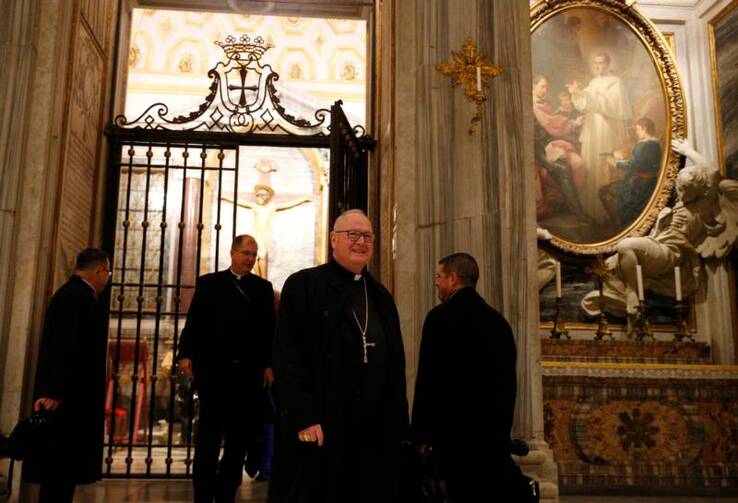The bishops of the United States are wending their way to Rome in different groups over the next four months for their ad limina apostolorum visits with Pope Francis and other Vatican officials. The visits, held every five years, allow bishops the chance to voice their specific concerns about their dioceses—and to get feedback from the Vatican as well.
There are myriad issues that need discussion, including the ongoing sexual abuse crisis and the continued exodus of U.S. Catholics from the church. But the visits are short, and both the bishops and the pope necessarily have to choose among the other issues they want to discuss.
The fault lines in U.S. Catholicism that have been present for decades have now widened into vast crevasses.
What will those issues be? Surely Pope Francis will want to discuss the “first proclamation,” the good news that Jesus Christ became human so that we might be saved from sin and death—in other words, evangelization. Other global issues that will likely be on the pope’s mind are the implementation of “Laudato Si’,” particularly on issues of climate change and environmental devastation (in large part due to overconsumption in countries like the United States). However, the U.S. bishops face issues that in some cases are particular plagues in our dioceses. Here are several that should feature in these conversations.
One necessary discussion should be about polarization, civility and respectful debate in the United States, both politically and within the church. Perhaps never before have we seen such rancor and division. The fault lines in U.S. Catholicism that have been present for decades have now widened into vast crevasses. Further, some of the most polarizing voices—often stoking fear about Pope Francis—come from tiny, unrepresentative factions within the U.S. church; but they command outsized attention. This imbalance is counter-evangelical, and the bishops need to find a way to right it.
Perhaps equally pressing is the issue of financial transparency. The unspoken elephant in the room is the way parish donations—and church financial holdings—are handled.
Perhaps equally pressing is the issue of financial transparency. The unspoken elephant in the room is the way parish donations—and church financial holdings—are handled. Recent scandals like that involving Bishop Michael J. Bransfield in Wheeling, W.Va., have made it clear that oversight and honesty must be hallmarks of church management. The widow’s mite was honored by Christ because she gave of her scant means. The notion that such generosity would be squandered or stolen is itself a scandal.
A final but pressing issue is that of accountability for episcopal misconduct. Many of the wicked deeds of Theodore McCarrick, the former cardinal, and Bishop Bransfield seem to have been ignored—or, in some cases, were aided and abetted—because of a culture that encouraged a “circle the wagons” mentality among clergy. The possibility of public scandal seems to have outweighed the enormity of private scandal. It is crucial to create a culture in which bishops call each other to account and are honest with the faithful while still maintaining a culture of collegiality and synodality. This may ultimately require a thoroughgoing renewal of clerical culture—from first-year seminary all the way to the chancery.
Because this all can read as a litany of crises and failures, it can lead to a loss of hope. But we can be sure that Pope Francis will tell our bishops the opposite: that it is the virtue of hope itself that encourages us all to, in the Lord’s words to St. Francis of Assisi, “rebuild my church.”










